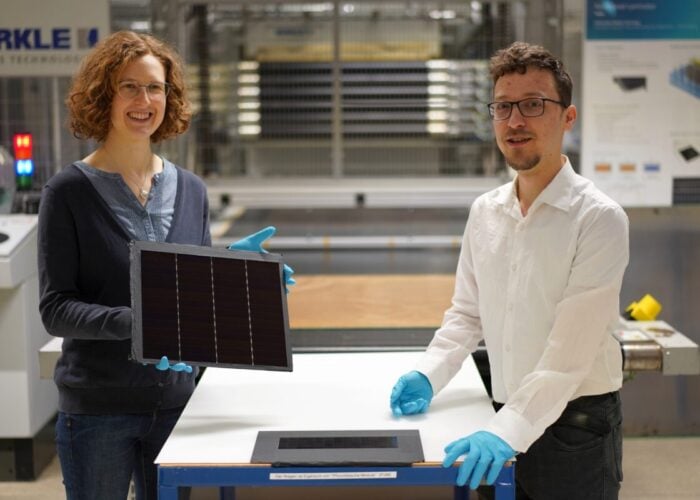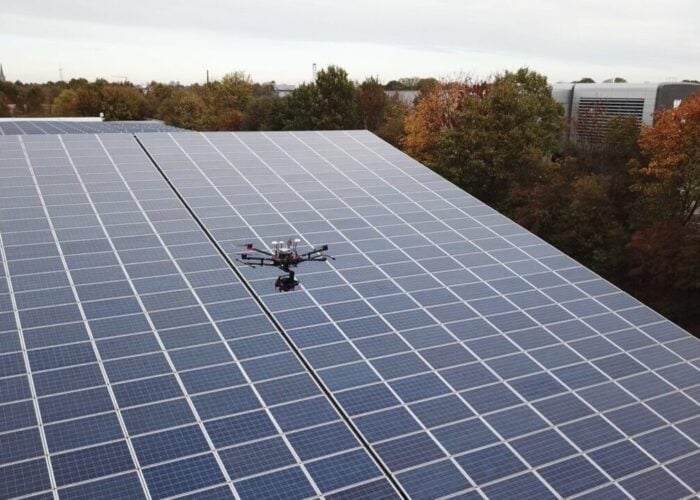
US cadmium telluride (CdTe) thin-film solar manufacturer First Solar has agreed to pursue further thin-film technology development with Germany’s Center for Solar Energy and Hydrogen Research Baden-Württemberg (ZSW).
Signed last week, the agreement will see First Solar and ZSW focus on both thin-film module performance and the development of perovskite/thin-film tandem solar technology at scale.
Try Premium for just $1
- Full premium access for the first month at only $1
- Converts to an annual rate after 30 days unless cancelled
- Cancel anytime during the trial period
Premium Benefits
- Expert industry analysis and interviews
- Digital access to PV Tech Power journal
- Exclusive event discounts
Or get the full Premium subscription right away
Or continue reading this article for free
In particular, ZSW has a history of researching copper indium gallium selenide (CIGS) thin-film technology, a now less common alternative to First Solar’s CdTe offering, and perovskite products.
This partnership follows First Solar’s May 2023 acquisition of Swedish thin-film and perovskite firm Evolar – now known as First Solar European Technology Center. At the time of this acquisition, First Solar CEO Mark Widmar said that the company saw “potential” for a “thin-film thin-film” tandem product with “a CdTe top cell [and] CIGS bottom cell.”
ZSW said in a statement that the goal of the new agreement was to increase the efficiency of thin-film modules. As well as the new Technology Centre in Sweden, First Solar’s primary research and development (R&D) centre is in Perrysburg, Ohio.
Perovskite developments, in tandem with both thin-film and ‘traditional’ crystalline silicon solar cells, are ongoing in the solar industry. Last week, researchers from an Iranian university unveiled a report into ‘half-tandem’ perovskite cells, which it said had reached a power conversion efficiency of 27.63%.
In an effort to introduce a more uniform certification mechanism for perovskites, German testing house Fraunhofer ISE launched a new testing apparatus to reliably track efficiencies for perovskite products. Perovskites have been plagued with a lot of publicity and a broad range of statistics and results, none of which have yet resulted in a commercially viable product.






